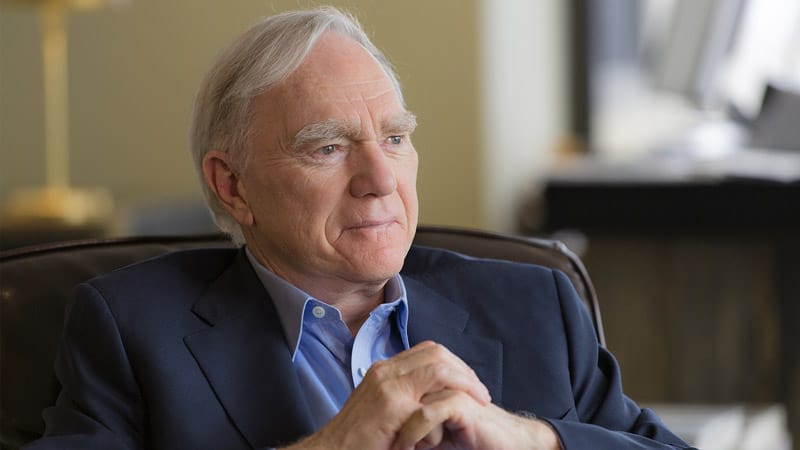Hi there,
What’s the Story?
The holidays are creeping up and this week we have a very cool article and podcast episode. Staying with the theme of cognitive biases, we dive into the mistakes we make when it comes to people! So often, our desire to read people falls short because of a few quirks of the mind. You can check out the podcast here: video.owenfitzpatrick.com. Learn how you can overcome these biases so you can read people better.
__________________
How Biases Lead Us Astray: Why You’re Not as Good at Reading People as You Think
Estimated reading time: 5 minutes 56 seconds
Our confidence in reading people is often misplaced. The truth is that many of us are stumbling through a fog of cognitive biases that distort our perceptions of others. We think we’ve got someone figured out, but what we’re actually doing is navigating a maze of mental shortcuts that lead to misleading conclusions. Why does this happen? Because our brains aren’t as objective as we’d like to believe—they’re wired to make snap judgments, and these judgments often get us into trouble.
Let’s dive into some of the most pervasive cognitive biases that trick us into misreading others, and how they shape the way we see and interact with people in all aspects of life—from business to personal relationships. Recognizing these biases is crucial to better understanding others and making sound judgments.
Social Comparison Bias: The Grass is Always Greener… For Everyone Else
It’s easy to feel like we’re falling short when we compare ourselves to others, especially in today’s social media-saturated world. This is known as social comparison bias—the tendency to evaluate our abilities, achievements, and attributes by measuring them against others.
Psychologist Leon Festinger highlighted this in the 1950s, pointing out that we have an inherent drive to evaluate ourselves, often by looking at those around us.
The problem is, when we compare our behind-the-scenes struggles with others’ highlight reels, we set ourselves up for feelings of inadequacy. For instance, when I run in Central Park on a Saturday, it seems like everyone around me is fitter, faster, and hotter. My own progress didn’t feel satisfying but when we play the game of comparison like that, we’ll always lose.
Others are comparing themselves to you, too—because we’re all selectively displaying our best moments. Instead of letting these comparisons drag you down, focus on your progress, recognizing that different people have different paths.
The Forer Effect: Why Vague Statements Seem So Personal
Ever read a horoscope or a motivational quote and felt like it was speaking directly to you? That’s the forer effect at play. We’re wired to believe that vague, general statements are uniquely applicable to us.
Named after psychologist Bertram Forer, who demonstrated in 1948 how people accept generic personality descriptions as personally meaningful, this bias explains why horoscopes, fortune cookies, and even some motivational speeches resonate with so many.
Politicians, spiritual gurus, and self-help experts often exploit the forer effect by using high-level language that sounds profound but lacks specific meaning. It’s easy to get swept up in the allure of statements like, “If you live true to yourself, you’ll discover your destiny,” but remember, it’s just wordplay designed to feel personal.
Semmelweis Reflex: Rejecting New Ideas Without a Second Thought
Named after Dr. Ignaz Semmelweis, who advocated for handwashing in hospitals only to be dismissed by his peers, this bias refers to the tendency to reject new evidence that contradicts established norms. We cling to what we know, often at the cost of growth and progress.
Consider how resistant people were to the idea of wearing masks or washing hands frequently during the early days of the COVID-19 pandemic. It’s not just about health practices—this bias shows up in business, too. We often dismiss innovative strategies because they contradict the “tried and true” methods. Overcoming this reflex requires a willingness to challenge our beliefs and consider fresh perspectives.
Projection Bias: Assuming Everyone Sees the World As You Do
We often assume that others share our emotions, thoughts, and preferences. Known as projection bias, this tendency can lead to major misunderstandings in relationships and the workplace. For example, just because you’re motivated to exercise every day doesn’t mean your partner or colleagues feel the same way.
In business, founders often think their passion for a project will naturally be shared by employees. But not everyone has the same level of enthusiasm, especially if they haven’t been involved from the start. Recognizing that others may not share your motivations or perspectives is key to avoiding miscommunication and fostering better understanding.
Reactance: The Automatic “No”
We often resist what we perceive as attempts to control our behavior—a response known as reactance. From the time we’re toddlers learning to say “no,” we instinctively push back against perceived threats to our autonomy.
This bias can manifest in everyday situations, such as resisting dietary advice because it feels restrictive, or doing the opposite of what a partner suggests just to assert independence. Reactance is often at play when we reject company policies that seem to limit our choices. Understanding this tendency helps us recognize when our resistance is more about preserving freedom than about the actual merits of the suggestion.
The Illusion of Transparency: Believing Others Can Read Your Mind
Ever felt sure that someone could tell you were upset without you saying a word? That’s the illusion of transparency—the overestimation of how well others understand your internal states. You might think people can sense when you’re in a bad mood or struggling, but they often don’t.
This bias can lead to frustration in relationships and communication. We assume our signals are clear, but they’re usually not. If you want someone to understand how you feel, you have to articulate it explicitly.
The False Consensus Effect: Thinking Everyone Agrees with You
We tend to overestimate the extent to which others share our beliefs, attitudes, and behaviors—a cognitive bias known as the false consensus effect. This bias causes us to assume that our perspectives are more common than they actually are.
For instance, we may believe that everyone follows the same diet or holds the same political views, leading to surprise or even anger when we find out otherwise.
Once you know how your mind works, you’re in the driver’s seat.
In-Group Bias: It’s Us Against Them
We tend to favor people who belong to our group and distrust those outside of it. This in-group bias helps explain why we’re so polarized today. We empathize more with those who share our background, beliefs, or social circles and view outsiders as less trustworthy or competent.
This bias extends to everything from choosing friends to hiring decisions. We’re more likely to accept advice from someone within our group and less likely to consider outside perspectives.
Overcoming Cognitive Biases: The Path to Better Judgment
Recognizing these cognitive biases is the first step in overcoming them. Awareness helps us challenge our automatic responses and question our assumptions. Here are some actionable tips to counteract these biases:
Pause and Reflect: Before making a judgment, ask yourself whether you’re falling into a bias trap.
Seek Diverse Perspectives: Listen to viewpoints from people outside your immediate group.
Articulate Your Feelings Clearly: Don’t assume others can read your mind; express yourself explicitly.
Be Open to New Evidence: Challenge your long-held beliefs when presented with new information.
Mastering these strategies can lead to more accurate perceptions and better decision-making, allowing you to navigate the complexities of human behavior with greater clarity.
In a world filled with snap judgments and misunderstandings, recognizing our cognitive biases isn’t just helpful—it’s essential. By understanding how these mental shortcuts distort our thinking, we can begin to unravel the stories we tell ourselves about others and see the world more clearly.
So, question your assumptions, challenge your biases, and remember that everyone’s path is different. May you use what you’ve learned to make better decisions and foster stronger connections.
For more insights, check out the full episode on the Changing Minds Podcast here and stay informed about how your mind works.
____________________
The Brain Prompt
Stop assuming everyone sees the world as you do. The next time you’re in a conversation, pause and ask yourself, “Am I projecting my thoughts, feelings, or beliefs onto this person?” Make it a habit to check your assumptions by asking open-ended questions to understand the other person’s perspective better. This simple shift from assuming to inquiring will help you avoid misunderstandings and improve your ability to read others more accurately.
Subscribe to the Inner Propaganda newsletter for weekly insights on psychology, influence, and the art of persuasion: owenfitzpatrick.com/newsletter.
Cheers,
Owen.





